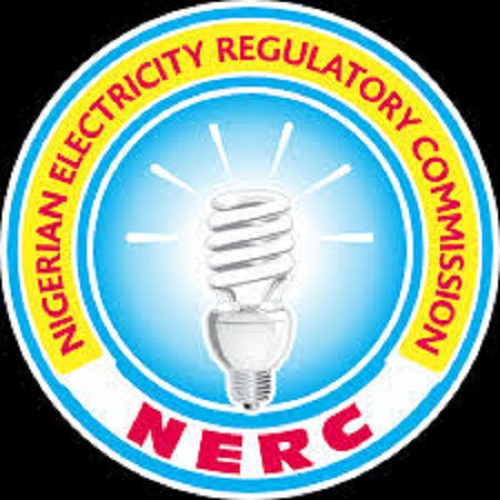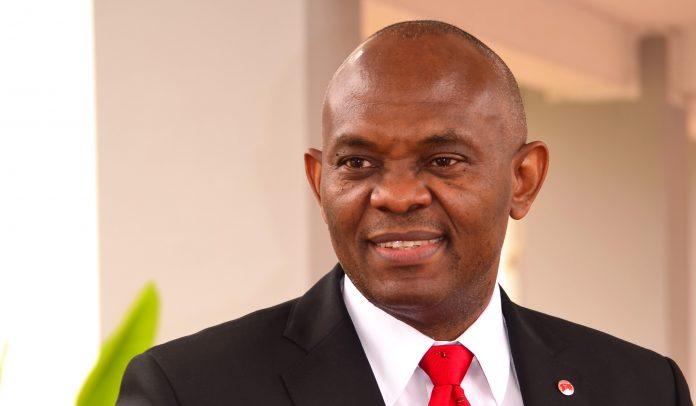Soneye
By Thaddeus Nduka
One of the best things to happen to the Nigerian National Petroleum Company Limited, NNPCL, was the appointment of Mele Kyari as its Group Managing Director in 2019. To fair-minded analysts, the appointment based on verifiable evidence has changed the trajectory of that company and set it on a path of sound corporate governance with the whole panoply of fiscal responsibility, transparency and ethical discipline.
Before Kyari’s coming the NNPC was rightly or wrongly, viewed by many Nigerians as a conduit pipe for the siphoning of government resources by private interests. It was also perceived by many as operating as a secret society whose activities are shrouded in mystery.
Kyari’s coming changed all that. He came up with a plan not only to change the ugly narrative about the NNPCL but to re-engineer its administrative processes and present to Nigerians and the international community, a world-class organisation run on global best practices. To achieve this, he unfurled his TAPE (Transparency, Accountability and Performance Excellence) agenda. TAPE signposted transparency in operations, commitment to excellence and more robust stakeholder engagement in a way that ensures a smoother relationship and closer collaboration with its partners and the Nigerian public.
It is clear that part of the recipe for the successful reversal of the negative trend of losses and the poor image the NNPC had borne for decades, is Kyari’s leadership style. NNPC insiders say the GCEO has an eye for talent backed by an uncanny ability to guide and coach his subordinates towards achieving the strategic objectives of the NNPCL.
A case in point is the headhunting of veteran journalist and media relations expert, Olufemi Soneye, from his United States base to function as NNPCL’s chief corporate communication officer. Key industry watchers are of the view that the step is perhaps the most significant decision Kyari has taken in the post-Petroleum Industry Act (PIA) era.
His appointment with the NNPCL on October 18, 2023, was received with much excitement, especially within the Nigerian media usually critical of its members taking up appointments with the government or the private sector. In just six months in office, Soneye, aligning his strategy with the overarching vision of TAPE as espoused by Kyari, has initiated a silent revolution in the communications process of NNPCL. One way he has done this is by transforming the entire Corporate Communications Division of the organisation to become a core part of every NNPC Ltd business.
He has done this by motivating and re-orienting his staff to see themselves as the first front desk of NNPCL whose attitude can impinge positively or negatively on the company’s relationship with its internal/external stakeholders. A key result of his tactics is that today, most business entities within the NNPCL, most of them unknown hitherto, have become recognisable to the Nigerian public through the CCD’s masterful and inspiring telling of their stories.
A few examples in this regard include the NNPC Foundation, whose CSR efforts are now in the public limelight; and the NNPC Academy, which is gradually becoming a leader in oil and gas training in the country.
While repositioning these previously unknown business units and entities of NNPCL, Soneye has repositioned the main brand itself to loftier heights through positive projection and promotion of the company’s brand identity. Through his all-round approach to corporate branding, individuals and organisations are coming in their numbers to associate themselves with NNPC Ltd.
Today, courtesy of his relentless efforts at repositioning the NNPC Ltd, the company enjoys global brand exposure with Soneye spearheading a 100% increase in the organisation’s brand visibility through strategic projection as a trailblazer and industry leader on both national and international platforms.
Soneye has secured impressive brand exposure for NNPC Ltd at key industry gatherings such as the Nigeria International Energy Summit, NIES, COP28 in Dubai, United Arab Emirates, CERAWEEK in Houston, Nigerian Association of Petroleum Explorationists, NAPE,, OTL, and SAIPEC, amplifying NNPC’s global footprint and reinforcing its position as a trusted industry leader on the international stage.
At the 41st edition of the NAPE Annual International Conference and Exhibition held in Lagos, NNPCL clinched the highly coveted Best Innovative Company Award, a testament to Soneye’s projection of the company as a relentless pursuer of innovation and excellence in the oil and gas sector.
It is noteworthy that Soneye has humanised the NNPC as a brand through the creation and deployment of captivating social media content. Through this effort, he has transformed the NNPC Ltd brand into a relatable and engaging entity, resulting in a substantial increase in followership across all social media platforms, thereby enhancing brand affinity and resonance.
Moreover, Soneye’s strategic collaboration with top-tier photo/video content producers facilitated the comprehensive deployment of compelling video, graphic, and textual content across NNPC’s digital screen network and other media platforms. This initiative not only elevated storytelling standards but also amplified NNPC’s brand presence and influence, boosting engagement across all stakeholder groups.
Part of Soneye’s retooling of NNPC Ltd’s public communications process is his introduction of an innovative communication strategy, transforming NNPC’s information dissemination system. Through proactive measures, including press releases, media coverage, syndicated features, interviews, documentaries, and press conferences, he has ensured timely and transparent release of information. He overhauled and curated all episodes of “Energy and You,” NNPC’s flagship TV program on NTA Network, delivering informative and engaging content that educates and empowers viewers on energy-related matters. This proactive approach enhanced transparency and trust within the company and among stakeholders.
Talking about NNPC Ltd’s stakeholders, one sees that this is one area he has left a deep impression. His adroitness in managing his company’s most critical stakeholders has been exceptional. Known by friends, colleagues and associates as “Mr. Relationship”, Mr. Soneye’s remarkable stakeholder management efforts have significantly improved the relationship between the NNPC Ltd and its external stakeholders like the national assembly and the media.
As a former journalist, Soneye has been able to manage NNPCL’s media partners in a way that has been mutually beneficial to most parties. Through his frank and timely response to enquiries, a good many negative reports against NNPC Ltd. have tremendously reduced or in some areas have been neutralised or substituted with positive ones.
One key example is his handling of the story around the deadline for the rehabilitation of Nigeria’s refineries. While critics and cynics were waiting for the bad news, Soneye took a large media contingent to witness and cover the mechanical completion of the Port Harcourt Refinery Company in December 2023, a move that nailed all rumours and renewed the media’s, and indeed Nigerians’ hope, in the entire rehabilitation process.
As NNPC Ltd’s chief corporate communication officer, Soneye tactfully responds to and manages summons from lawmakers, demonstrating resourcefulness in fostering positive relationships with both critical and non-critical committees. Through strategic engagement and effective communication, he addresses the needs and concerns of these committees while ensuring their alignment with NNPC Ltd’s objectives and values. Soneye’s proactive communications strategy has not only strengthened NNPC’s reputation as a trusted partner but has also significantly enhanced the company’s relationship with this crucial external stakeholder group.
Another positive attribute Soneye has brought to his job as NNPC Ltd’s chief image maker is his proactive approach to crisis management. Since his employment as the company’s spokesman, he has been able to sniff out, and promptly act on, potential reputation landmines for the NNPC Ltd, averting crisis in the process. He has put in place a team that tracks and monitors developments in the media and its various engagements with relevant stakeholders. This forward-looking strategy of his was evident during the Project Gazelle story(a $3.3 billion AFREXIM Bank crude oil pre-payment loan secured by NNPC Limited on behalf of the federal government) which was generating interest in the media and had the traits of degenerating from an issue to crisis. Soneye, employing proactive management and exceptional proficiency in high-stakes public relations ensured transparent communication and fostered confidence among stakeholders.
Today, barely five months in office, Soneye’s commitment to excellence, Soneye’s creative corporate communications strategy, and his masterful interfacing with NNPC’s critical stakeholders, which have earned the company global visibility and respect, are being acknowledged within and outside Nigeria.
On Wednesday, the Nigerian Institute for Public Relations (NIPR) on March 27, 2024, at its National Spokespersons Award, handed him the NIPR Distinguished Spokesman in Oil and Gas Award. It was a crowning moment of six dogged months of hard work which drew on the experience of working in three different continents.
Represented at the NIPR event by Kemi Olumuyiwa, head of relationship and stakeholder management, Soneye, who was away in the United States on assignment, was grateful for the recognition bestowed on him. In a brief message read on his behalf, he said: “I am deeply honoured to receive the NIPR Spokesperson of the Year Award in Oil and Gas. This recognition means a great deal to me, and I am truly humbled by the acknowledgement of my efforts in representing NNPC Limited. I would like to dedicate this award to the Group Chief Executive Officer of NNPC Ltd, Mele Kyari, whose unwavering support and guidance have been instrumental in shaping my role as spokesperson. Additionally, I extend my heartfelt appreciation to the entire Corporate Communications team for their collaborative efforts and dedication to excellence. This award is for the whole team”.
He added that the award would spur him to continue striving for excellence in representing NNPC Limited, the oil and gas sector, and upholding the highest standards of communication.
Nduka is a public affairs analyst



























